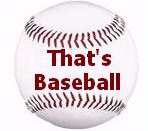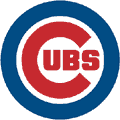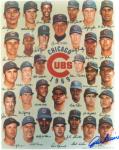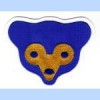 |
The
Chicago Cubs
in the 1960s
Summary
|
 |
||||||||||
 |
PK Wrigley, who didn't understand the game much better in 1961 than he did when he took over in 1933, decided to implement a radical change in the leadership structure of the team. He had had it with always having to fire and then hire managers. How to avoid that? Get rid of the post of manager. His scheme was one of the more poorly conceived ideas in the history of the game of baseball: the College of Coaches.
....[Elvin] Tappe suggested hiring a corps of coaches and keeping them as coaches, no matter who was the manager .... But Phil Wrigley wasn't satisfied with Tappe's system. He wanted a system of his own he could implement .... So rather than keep a central corps of coaches no matter who was the manager, as Tappe had suggested, Wrigley made the decisions that (a) the Cubs would be better off not having a manager at all; (b) there would be a pool of coaches from which to pick a head coach; and (c) every few weeks he would switch them around. The players, Wrigley decided, could thus benefit from the accumulated knowledge of the group.
....Said [a] mocking critic of Phil Wrigley's new scheme, "The Cubs have been playing without players for years. Now they're going to try it without a manager."
....One trivia question: Who were the original eight coaches in the College of Coaches? They were Charlie Grimm, Harry Craft, Rip Collins, Bobby Adams, Vedie Himsl, El Tappe, Verlon Walker, and in the minors, Goldie Holt.
Wrigley added to this group of coaches Lou Klein, Freddie Martin, and Charlie Metro, who came from the Detroit Tigers. In 1963, Wrigley hired a new head coach, Bob Kennedy ....
Don Elston recalled ... the fallout from PK Wrigley's oft-discussed ... sociological experiment in team dynamics ....
"....I don't think you will talk to one ballplayer who played under that system that's going to say anything different than it was very hurtful, and it was a very bad situation ....
"....If you look at that list, there is not one decent major league manager in the group. Not one. And yet, you've got them taking turns every five or six weeks.
"Our concern as players was that not one of them helped one of the others .... All they did was wait until it was their turn.
"....And this was not a bad team. They had moved Ernie Banks to first, Kenny Hubbs was at second, Andre Rodgers was at short, Ron Santo at third. We had an outfield of George Altman, Lou Brock, and Billy Williams. Dick Bertell caught. This was not a bad team. [Bob] Buhl, [Dick] Ellsworth, [Don] Cardwell, [Cal] Koonce, [Glen] Hobbie, me ....
"Bob Kennedy, who was one of the College of Coaches, took over in '63. That's when they stopped it. When we started '63, we were relieved this thing was over....
"At the trading deadline ... in mid-June of 1964, we made what arguably could have been the worst trade in the history of the Cubs. We traded Lou Brock to the St. Louis Cardinals for pitcher Ernie Broglio. Ernie had won 18 in '63. Lou was a young kid .... Too often in trades the Cubs got these pitchers who were through. Broglio was another one ...."
With the Cubs, Lou Brock had shown flashes of superhuman skills. In '62 as aCubs rookie he had homered over the center-field bleachers in the Polo Grounds, a distance of 485 feet. Only Joe Adcock of the Milwaukee Braves had ever hit a ball there before him. In '63, Brock stole 24 bases on a team not known for its baserunning. After the trade in June '64, Brock, then only twenty-four, helped lead the Cardinals to the pennant....
LONNIE WHEELER (Writer): "The great unknown of the Banks-Williams-Santo-Jenkins-Beckert-Kessinger-Hundley Cubs was what would have been if Chicago had not traded Lou Brock to the Cardinals for Ernie Broglio in 1964. It wasn't bad luck, though, that sent Brock away. The Lou Brock who wore St. Louis colors and became the greatest base stealer in the history of the game would not have been the same man in Chicag's striped suit. The Cubs were not capable of producing a player like the one who kick-started the Cardinals when they took three pennants and two World Series in the sixties."
....Ron Santo, who began his career in 1960, was a rarity, a young star playing on the Cubs. Phil Cavaretta, who began at age eighteen a quarter of a century earlier, had been the last young star before him.
During his fifteen-year career Ron Santo hit 342 home runs. The only career-long third basemen to hit more were Craig Nettles with 390, Eddie Mathews with 512, and Mike Schmidt with 548.
Santo saw firsthand that the Cubs organization of the early 1960s had certain philosophies: It preferred veterans to kids, even if the veterans couldn't play as well; it would trade top prospects for veterans, even if the veterans were at the end of their careers; and it wanted those veterans not to criticize the front office.
Santo recalled how the Cubs traded pitching prospect Ron Perranoski, who later pitched in three World Series with the Dodgers, for over-the-hill utility infielder Don Zimmer. When they couldn't bring themselves to start him at third, the Cubs soon got rid of Zimmer, not for any lack of skill, but because Zim publicly said he felt the College of Coaches, with its lack of stability, was injurious to the Cubs' young players.
....In addition to Ron Santo, the Cubs in the early 1960s had another potential Hall of Fame infielder in Kenny Hubbs, who had signed in 1959. After two years in the minor leagues, Hubbs became the Cubs' regular second baseman in 1962.
As a Little Leaguer, Hubbs had led his Colton, California, team to the finals of the Little League World Series. In one game he hit four home runs. He set a Little League record with 17 straight hits. After the series Kenny and his dad visited Wrigley Field, where he watched Ernie Banks hit two [home] runs.
....With the Cubs in 1962, Kenny Hubbs was a twenty-year-old sensation on an old ninth-place team. He was in the starting lineup on opening day. On June 12 he made an error. He didn't make another one until 78 games later. First he broke the 56-game National League second-base record set by Red Schoendienst, and then he broke the 73-game major league record set by Bobby Doerr. Doerr also held the record of 414 consecutive chances without an error. Hubbs broke that too, handling 418 chances in a row before throwing away a routine grounder on September 5.
At bat, he hit only .260, but he drove in enough runs to make him one of the better second basemen in the game. He was named Rookie of the Year.
In 1963, Hubbs helped anchor the infield as the Cubs improved to 82-80 under Bob Kennedy.
Hubbs never made it to spring training the next year. He had conquered his fear of flying by earning a pilot's license. On February 13, 1964, Ken Hubbs and a close friend he was visiting, Dennis Doyle, took off from Provo Airport in Utah to return to Colton, California .... Hubbs lost visibility and must have become disoriented, because the plane was in the air less than a minute when it dived and then crashed onto an ice-covered section of Utah Lake ....
Hubbs' death was a blow that delayed the resurgence of the Chicago Cubs for several years. His teammates remembered Kenny not only for his great skill but for his religious beliefs and his character.
The College of Coaches had been an abject failure. The Cubs needed leadership, and they needed it desperately, so much so that Phil Wrigley did something he hadn't done since he took over the Cubs in the 1930s: He hired a strong-willed, autocratic baseball genius, a proven winner capable of leading the team to a pennant. The man's name was Leo Durocher, one of the most famous (and infamous) managers in the history of the game. To get him, Phil Wrigley had to sit back and let Leo make the decisions on trades and other roster moves. But by 1966, Phil Wrigley was embarrassed, and if he had to step back and let Leo take over, so be it.
....Durocher, who managed in the big leagues for twenty-four years, knew how to shape winning teams. His teams won three pennants, in 1941 with the [Brooklyn] Dodgers, and in 1951 and 1954 with the New York Giants. His '54 team had beaten the favored Cleveland Indians in the World Series in four straight.
Before coming to Chicago, Leo's last stint as manager, an eight-year run with the New York Giants, had ended in 1955. During that period he had won twice, finished second twice, third twice, fourth once, and fifth twice. He then moved on to coach the Los Angeles Dodgers under manager Walter Alston. After causing dissension there, he was fired.
....Leo successfully ran the Cubs for six full seasons, and most of a seventh. After a first-year maiden voyage during which the Cubs finished tenth and last, the team under Leo never finished lower than third during the rest of his stay.
His Cubs never won a pennant, but they came damn close, and for almost seven years Cubs fans had the pleasure of being able to root for one of the most exciting teams in Chicago Cubs history.
....One of Leo's favorites on the Cubs was an infielder named Glenn Beckert. Beckert, from the Pittsburgh area, was a Pirates fan, but at the time he left Allegheny College, the Pirates had Bill Mazeroski and Dick Groat playing in their infield. In 1962, Beckert fell in love with Fenway Park and signed with the Boston Red Sox for a $6,000 signing bonus.
Beckert played one season in the minors and was promoted to Boston's Triple A team in Seattle. The way the draft rules worked back then, if a player wasn't on the forty-man roster, another team could draft him if it promoted him a level. The Cubs took Beckert and placed him on their forty-man roster.
....In February 1964 Kenny Hubbs was killed in a plane crash. One year later Beckert found himself with the Cubs in spring training. By the end of 1966, playing for Leo Durocher, he would be known among the players as Leo's Boy. Beckert became the starting second baseman for the Cubs, a spot he would hold for nine productive seasons.
....Another of the young players to benefit from the coming of Leo Durocher was twenty-three-year-old catcher Randy Hundley.
Hundley, who hails from Martinsville, Virginia, was seventeen years old in 1960 when he signed with the San Francisco Giants for $100,000. When Hundley started out, he discovered the Giants were stocked with catchers, including Tom Haller, John Orsino, Dick Dietz, and Bob Barton. The competition was brutal.
Hundley played two games with the Giants in '64 when Tom Haller got hurt, and then six games in '65. At the end of the season, the outspoken youngster told the Giants brass, 'Play me, trade me, or release me. It looks like I'm not going to go anywhere in this organization."
Chub Feeney was the Giants general manager, and he obliged Hundley in the off-season. He traded him to the Cubs with pitcher Bill Hands for Lindy McDaniel, Don Landrum, and Jim Rittwage.
RANDY HUNDLEY: .... "That first season we finished tenth. It was a combination of inexperience mixed in with veteran players, some of whom were at the tail end of their careers, others who really were kind of finishing up mediocre careers, with all due respect. Leo just started releasing a lot of guys, 'backing up the truck,' as he called it, and started the team that he wanted.
"That second year, 1967, we were a contender. Leo released some guys who didn't play the game the way he wanted it to be played. And some guys started to believe in him too. Pitching was always the major problem in Chicago. I don't care how far you go back. It's always been pitching. We started to get some pitching, made the trade for Fergie Jenkins, and Fergie became a starter. Bill Hands and Ken Holtzman came, though we always had a tough time out of the bullpen.
"But Leo made us believe that we could win, and it was fun...."
The last time the Cubs had won the pennant, 1945, they were tied for fifth in home runs but first in earned run average. That was perhaps the most important aspect of the game of baseball that Phil Wrigley never understood. You can have the greatest hitters in the world, but if you don't have quality arms to get the other side out, you don't win very many ball games.
....Because of the friendly confines of Wrigley Field, over the years the Cubs emphasized hitting. The more runs, the more fans. Outfielder Hank Sauer had an MVP year in 1952. The team still finished fifth. Even with Ernie Banks, the greatest slugger in the team's history, the Cubs couldn't reach the first division throughout the 1950s. Even the addition of all-stars Billy Williams and Ron Santo did not allow the Cubs to escape the second division.
The team's resurgence did not occur until ... on April 21, 1966, [John] Holland and Durocher made one of the finest trades in Cubs history when they swapped two veteran pitchers, Larry Jackson and Bob Buhl, to the Phils for an exciting young outfielder named Adolfo Phillips, a first baseman named John Herrnstein, and a little-known relief pitcher named Ferguson Jenkins.
Holland made the trade only after Durocher and he were unable to acquire slugger Orlando Cepeda from the San Francisco Giants .... Unable to get Cepeda, the Cubs then turned to Philadelphia for John Herrnstein. When the Phils expanded the deal, they included Jenkins.
Herrnstein played nine games for the Cubs and was traded to Atlanta .... Fergie became a star en route to a nineteen-year Hall of Fame career.
One Philly pitcher, Robin Roberts, a Hall of Famer near the end of his career, had seen Jenkins' talent. Roberts begged the Phils management to switch Jenkins from relief to a starting role and let him pitch every fifth day.
Fortunately for the Cubs, the masterminds of the Pathetic Phillies didn't listen to their pitching star. The Phils brass was convinced that Jenkins didn't throw hard enough and that he wasn't durable, a laughable assessment considering that in his career he would pitch 267 complete games .... So they traded the expendable Jenkins. It is trades such as these -- the sort of trades the Cubs had been making for twenty years -- that change baseball history.
In 1966, Ferguson Jenkins won six games. Two were complete games. The following year Leo Durocher handed him the ball every fourth day, left him in to the end of ball games, and showed confidence in him. Under Leo's watchful eye and acid tongue, Fergie produced 20 victories, a feat he accomplished in six of the seven years between 1967 and 1973. Under Durocher, Jenkins flourished .... Under Leo, Fergie Jenkins became the finest pitcher to wear a Cubs uniform since Mordecai "Three-Finger" Brown .....
FERGUSON JENKINS: "We had an infield of Banks, Beckert, Kess, Santo. And Hundley was the catcher, and yet in '66 it was a terrible team. A terrible ball club.
"We were all fairly young, except Ernie was a veteran, along with Ronnie and Billy. We had Kenny Holtzman, Bill Hands, and our infield. We had Adolfo Phillips in the outfield, and George Altman, Ted Savage. And all of a sudden, in '67 we started winning ball games, and in '68 we became an even better ball club. We started playing well together, and then in '69 we started off the season winning, and we stayed in first place almost the whole year, until the mets caught us."
....In 1969, the Cubs under manager Leo Durocher began the season 11-1 and by the end of April were 16-7. In May the team again won 16 games, as they began to distance themselves from the defending champion St. Louis Cardinals.
The Cubs had four fine starters in Fergie Jenkins (21-15, 3.21, 7 shutouts), Bill Hands (20-14, 2.49, 300 innings pitched), Ken Holtzman (17-13, 3.59), and Dick Selma (10-8, 3.62), a relief corps that included Phil Regan (12-6, 17 saves), Ted Abernathy, and Hank Aguirre, and in the field again was the infield of Banks, Beckert, Kessinger, and Santo, with Randy Hundley behind the plate, Billy Williams in left field, and Jim Hickman in right."
....As proof positive of the Cubs' first-half season dominance in '69, at the All-Star Game in late July the entire Cubs infield of Banks, Beckert, Kessinger, Santo, and Hundley made the lineup, as the National League won 9-3 ....
GLENN BECKERT: "After mid-August, the Mets got strong. They came from fifteen back, and they had an .800 record. They won something like twenty-eight of thirty-five ball games. [Actually, they were 9-1/2 back at their worst, then won 38 of 49 games.] They beat Pittsburgh in a doubleheader 1-0 both games ... and every time we went to another city like Philly or St. Louis or Cincinnati we'd get beat, and our lead went from nine games down to one ....
"You have to give the Mets credit. They came up with a hell of a pitching staff, guys nobody heard of. Who had heard of Tom Seaver? Or Jerry Koosman? I mean, they were good, but who knew they were that good? They won with pitching, and the ball just turned in their corner ....
"We kept telling ourselves, 'We have to keep winning one game at a time and not look forward to another series against so-and-so and to keep playing hard,' and unfortunately we stopped scoring runs. Our offense dwindled, and then our defense was subjected to a lot of criticism.
"We began to feel the pressure. The pressure comes from trying to play hard to win. The writers put it on a lot of things: playing in the heat, day games in Chicago, that we didn't have much of a bench. We had four guys, Popovich, Nate Oliver, Gene Oliver, and Willie Smith. We weren't spelling a lot of regulars, and unfortunately, our guys were tired."
FERGUSON JENKINS: "We suffered a bit because the critics -- the fans, the press, maybe even the front office -- gave so many different reasons why we lost, and not the right reasons. The only true people who knew were the manager, Leo Durocher, the coaching staff, and the ballplayers.
"The real reason was that we had played out the string. We were tired. Leo played the regulars almost the whole season. Billy played 160 games, Santo 160, Ernie 150-some, Kessinger [157] and Beckert [129] played unless they were hurt, they played all the time. And Randy caught 150 games ...."
GENE OLIVER: "One thing people forget: You don't have to be a mathematical genius. We had a thirteen-game lead with thirty games to play. All we had to do was play .500 ball. The Mets had to win a lot of games. And they did. They won twenty-seven out of thirty-five, and we didn't play .500 ball. That isn't choking. We didn't lose it. They won it.
"We failed to win the National League championship, and even though they didn't get their World Series, the fans of Chicago said, 'Baby, you have us the best season we had since 1945.' And they have remembered our ball club more than the '84 Cubs, more than the division-winning Cubs of '89. I'll guarantee, you ask any Cubs fan who played on the '69 Cubs, they'll know. It was a love affair.
--Peter Golenbock
Wrigleyville
 oo oo |
|||||||||||